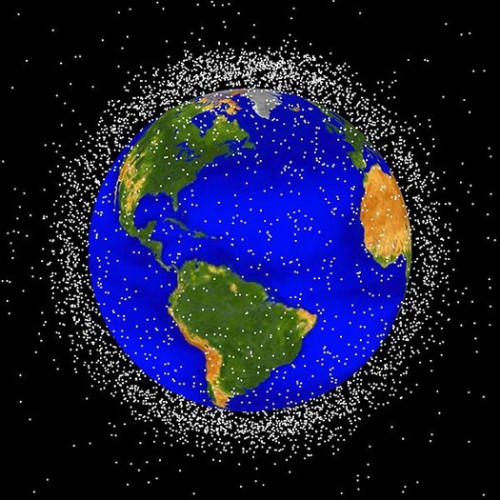By signing the agreement, Israel joins an all-American move, whose partners are space-seeking countries that consider themselves responsible for ensuring ongoing, safe, and sustainable activity in space. Among the countries that are already cooperating with the US on this issue: Great Britain, South Korea, France, Canada, Italy, Japan, Australia, Germany and the European Space Agency.

The issue of space debris worries all countries that operate satellites, and in particular those that build them themselves. As is well known, Israel is the eighth country in the world to build satellites and launch them into space, first these were the Ofek military photography satellites, followed by the Amos series communication satellites, civilian photography satellites (Eros), and more. All these satellites orbit the earth in narrow ranges of distances (400-800 kilometers - low earth orbit, and 36 thousand kilometers above the equator - the orbit of the communication satellites which allows them to rotate at the same speed as the earth, so that in practice they will always be above the same point , so that dish antennas can be aimed at them.
In recent years, the issue has come to the fore after in 2007 the Chinese intercepted a satellite that stopped working and instead of one satellite, thousands of fragments are now floating in space that could damage the satellites, and one of them even Hit in 2013 a Russian satellite. Also the collision
The Directorate of Space at the Ministry of Defense and the Strategic Command of the US Army signed an agreement for cooperation on tracking objects moving in space (man-made and non-man-made), with the aim of ensuring ongoing and continuous activity in space, and preventing unwanted collisions resulting in the worsening of the problem of proliferation Space debris originating from active satellites, fragments of satellites, parts of upper stages of launchers, and also fragments of asteroids and comets from natural sources.
By signing the agreement, Israel joins a comprehensive American move, whose partners are space-seeking countries, who consider themselves responsible for ensuring the ongoing, safe, and sustainable activity in space. Among the countries that are already cooperating with the US on this issue: Great Britain, South Korea, France, Canada, Italy, Japan, Australia, Germany and the European Space Agency.
This cooperation will improve the information available in each of the countries, regarding movement in space, and will raise the level of security in everything related to the activity of satellites that are essential for daily operations in the fields of communication, forecasting, weather, navigation, etc.
In recent years, there has been an increase in the number of satellites launched into space each year, as well as in the number of government and private players that own satellites. As a result, the space close to the Earth gradually becomes dense. Therefore, it is necessary to continuously and efficiently track the objects moving in space. To this end, these countries chose to cooperate, and share information about the movement of satellites and objects in space, with the aim of providing more accurate warnings against unwanted collisions. This information is essential when launching into space, maneuvering satellites, electromagnetic interference and more.
The head of the Space Directorate at the Ministry of Defense, Brigadier General (Ret.) Amnon Harari: "This agreement puts Israel on the same page as the countries that see themselves as partners in concern for stability in the world, and global security, and will contribute to Israel's national security."
Admiral Cecil Haney, commander of the US military's strategic command, noted in his words the strategic command's determination to improve the situation in space, and improve cooperation and the provision of services to countries, organizations and companies that operate satellites in space. After all, he said, "everyone has a common interest in acting responsibly, increasing transparency and thereby creating a safe, stable and sustainable space over time."
- More of the topic in Hayadan:
- CEO of the aerospace industry at the cyber conference: cyber defense in space is a growing field, more and more satellite operators are aware of the problem
- For the first time - a collision between space debris and nano satellites
- Who does this space belong to?
- Fractions are not simple

One response
Pretty